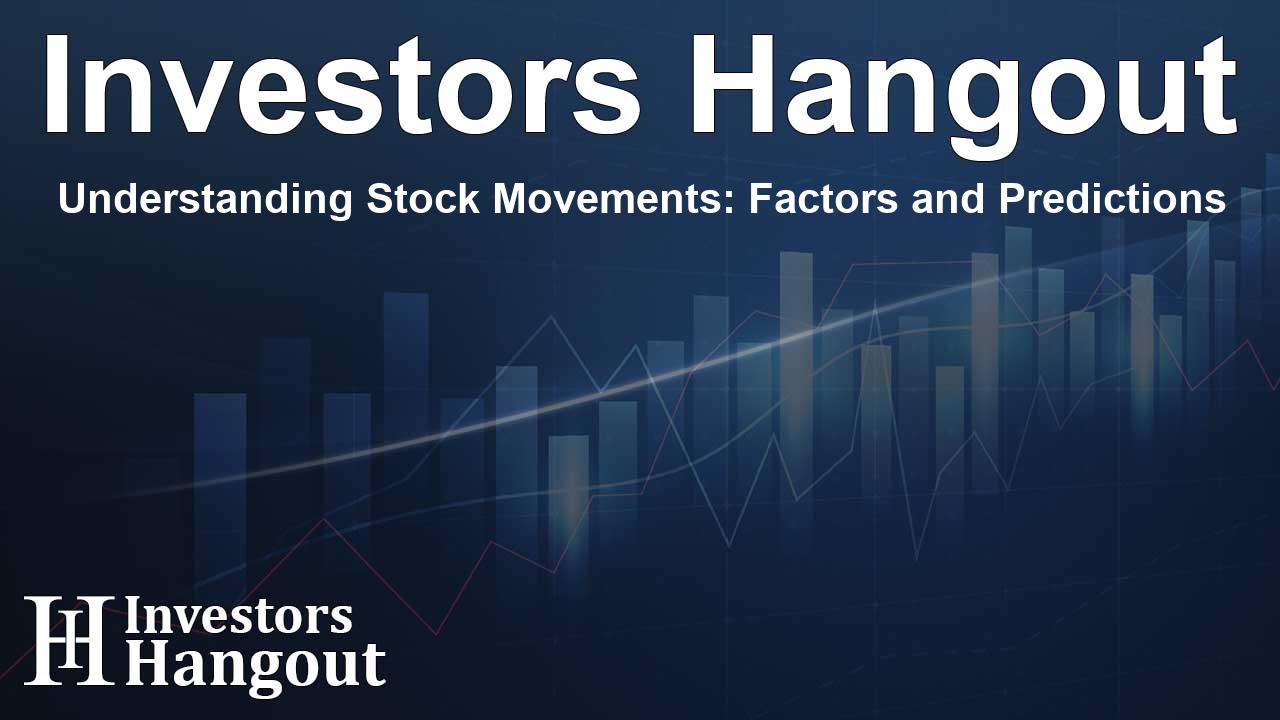Understanding Stock Movements: Factors and Predictions

Understanding Market Dynamics and Stock Predictions
The stock market operates under various influences, and it's crucial to grasp how they interplay. Volatility is a key element that affects stocks, bonds, and currencies. When volatility decreases, particularly after significant market events, stock prices often rise. For instance, the VIX index serves as an excellent tool to gauge volatility around specific events, such as earnings reports or economic announcements. As the VIX index rises, the S&P 500 tends to experience upward momentum following these events.
Key Indicators Impacting Stock Movements
For example, prior to a major announcement, the VIX index may reveal fluctuations that suggest uncertainty among investors. If the VIX closed at a moderate level before an event but surged after it, it indicates heightened market activity. Following last week's CPI report, stock gains quickly dissipated, showcasing a common market trend where initial optimism fades after event-related volatility subsides.
The Ripple Effects on Bonds
Bonds too are influenced by these fluctuations. The VXTLT index serves as a vital indicator for tracking bond market volatility. Observing its movements can illustrate the bond market's response to major economic signals. For instance, if a significant announcement leads to a spike in volatility, there might be a subsequent drop, causing bond prices to rise and yields to fall.
Understanding the Fed's Approach to Inflation
Recent discussions surrounding inflation targets have circulated widely on social media. Still, it's essential to clarify that the Federal Reserve's current framework regarding inflation has not changed drastically. The Fed aims to maintain a 2% inflation average over time, and any claims about an abandonment of this target could be misleading. A careful review of official statements will demonstrate that the Fed remains steadfast in its approach to inflation.
The Potential of Future Rate Adjustments
Despite market speculations, the outlook for interest rates remains cautious. The Fed's reliance on data grows with each new economic report. The possibility of a September rate cut hinges on upcoming labor data, which carries significant weight for future monetary policy. If the metrics reveal severe job losses or unexpected revisions, traders might anticipate a rate cut, impacting various risk assets.
Anticipating Market Movements Ahead
As we approach a new trading week, certain market events warrant attention. Settlement dates are scheduled for key transactions, with significant sums expected in the first days of the month. Such financial movements can either stabilize the market or contribute to further volatility, depending on the prevailing economic climate and investor sentiment.
In conclusion, understanding the market's dynamics is essential for investors. By keeping an eye on indices like the S&P 500 and key economic indicators, one can navigate the complexities of trading with more confidence. As the market evolves, staying informed and adaptable will be key to making sound investment choices.
Frequently Asked Questions
What is the role of the VIX in stock predictions?
The VIX measures market volatility. A rising VIX often indicates higher uncertainty, which can trigger movements in the S&P 500.
How does the Federal Reserve influence stock movements?
The Fed's interest rate decisions and inflation targets heavily influence investor sentiment and can lead to fluctuations in stock prices.
Why do investors pay attention to event-driven volatility?
Event-driven volatility can create opportunities for price movements in stocks. Investors closely monitor events that could affect the market.
What should I watch for in upcoming economic reports?
Key reports like job data and CPI can signal the health of the economy, shaping investor expectations and influencing market trends.
How can settlement dates impact the stock market?
Settlement dates can lead to significant cash flows in the market, potentially increasing volatility or stabilizing prices based on investor behavior.
About The Author
Contact Olivia Taylor privately here. Or send an email with ATTN: Olivia Taylor as the subject to contact@investorshangout.com.
About Investors Hangout
Investors Hangout is a leading online stock forum for financial discussion and learning, offering a wide range of free tools and resources. It draws in traders of all levels, who exchange market knowledge, investigate trading tactics, and keep an eye on industry developments in real time. Featuring financial articles, stock message boards, quotes, charts, company profiles, and live news updates. Through cooperative learning and a wealth of informational resources, it helps users from novices creating their first portfolios to experts honing their techniques. Join Investors Hangout today: https://investorshangout.com/
The content of this article is based on factual, publicly available information and does not represent legal, financial, or investment advice. Investors Hangout does not offer financial advice, and the author is not a licensed financial advisor. Consult a qualified advisor before making any financial or investment decisions based on this article. This article should not be considered advice to purchase, sell, or hold any securities or other investments. If any of the material provided here is inaccurate, please contact us for corrections.
